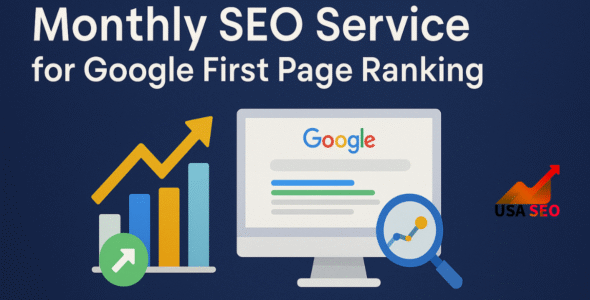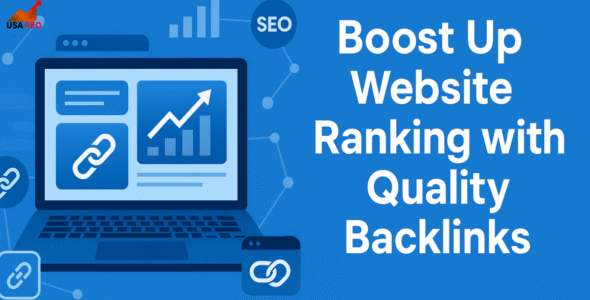With constantly changing search engine algorithms, it can be difficult to adhere to best practices to increase your Google ranking. But good ranking is essential for any website, so it is important to stay up-to-date. In this blog post, we will discuss 10 tips that you can use to improve your Google ranking in 2023. We’ll look at on-page and off-page SEO techniques you can use to ensure your website is visible. And as successful as possible. Read on to learn more!
Publish relevant content
Publishing relevant content is important for any website that wants to improve its Google ranking. Conduct keyword research and understand your audience to create content that meets their needs and interests. Providing value through informative, entertaining, or problem-solving content helps attract and retain visitors to your website. Keeping your content fresh and up-to-date improves rankings, as search engines favor sites with regularly updated information. Using multimedia, internal linking, and meta descriptions enhances user experience, making content more shareable and improving Google rankings. By focusing on publishing relevant and valuable content, you can improve your website’s visibility and attract more traffic over time.
Update your content regularly
Updating your content regularly is an important strategy for improving your Google ranking.
Here are some reasons:
- Improved Relevance: Updating your content with new and relevant information keeps it up-to-date and relevant to your audience. This can improve engagement and attract new visitors to your website.
- Increased Traffic: Updating your content encourages search engines to re-crawl your site, leading to improved visibility and more traffic.
- Improved User Experience: Regularly updating your content shows that you are committed to providing value to your audience. This can improve user experience and help establish trust and credibility.
- Better search engine crawling: Search engines favor regularly updated websites with new content. Updating your content can help search engine crawlers understand the structure and relevance of your website.
- Improved Keyword Optimization: Updating content allows you to optimize it for relevant keywords, boosting visibility and rankings.
To ensure your content stays fresh and relevant, consider updating it regularly, whether weekly, monthly, or quarterly. Repurposing old content like videos, infographics, or social media posts into new formats keeps it relevant and engaging. Regularly updating your content can boost your Google ranking, attract more traffic, and enhance the user experience.

Metadata
Metadata plays a very important role in search engine optimization (SEO) by providing search engines with additional information about the content of a web page. The title tag and meta description are two of the most important pieces of metadata, as they appear in search engine results and can affect the click-through rate on your website. It’s important to use relevant keywords in these tags and provide a concise, accurate description of the page’s content. Header tags are also important for structuring content and making it easier for search engines to understand the hierarchy of information. Alt tags are used to provide descriptions of images, which help search engines understand what the image is about and can improve page accessibility for visually impaired users. Finally, canonical tags are used to indicate the preferred version of a page when there are multiple versions of the same content, which helps avoid duplicate content issues. By optimizing your metadata, you can improve your website’s relevance and visibility in search engine results and attract more traffic to your site.
Have a link-worthy site
Having a link-worthy site is important to improving your website’s Google ranking. A link-worthy site is one that has high-quality content that is informative, engaging, and valuable to your target audience. When your content is linkable, other websites are more likely to link to it, which can increase your website’s authority and relevance
Backlinks are a vital positioning component in Google’s calculation. These are seen as votes of confidence from other websites that your content is valuable and relevant. The more high-quality backlinks your site has, the more likely your website will rank in search engine results.
Having a link-worthy site can improve the user experience on your site. High-quality content that is well-written and visually appealing can make visitors spend time on your site and encourage them to explore other pages. It can also signal to search engines that your site is relevant and authoritative.
Finally, a link-worthy site is more likely to be shared on social media, which can increase the visibility of your content and drive traffic to your site. By creating valuable and engaging content, you can improve your site’s link-worthiness and improve your Google ranking over time.

Optimize your site for mobile
Optimizing your site for mobile is essential in today’s digital landscape. An ever-increasing number of individuals are presently utilizing cell phones to peruse the web. So having a mobile-friendly site is very important to improve your Google ranking Reason:
- Improved user experience: A mobile-friendly site provides a better user experience for visitors who access your site on their mobile devices. Your site will load faster, be easier to navigate, and be more readable on smaller screens, which can increase the time users spend on your site and reduce bounce rates.
- Mobile-first indexing: Google now uses mobile-first indexing, which means it uses the mobile version of your site to determine its relevance and ranking in search engine results. If your site is not mobile-friendly, it may not rank as well as competitors who have optimized their sites for mobile.
- Local search: Mobile users are often looking for local information, such as directions or business hours. If your site is optimized for local search, it can help you rank higher in local search results and drive more traffic to your business.
- Competitive Advantage: If your competitors haven’t optimized their sites for mobile, you can gain a competitive advantage by doing so. By providing a good mobile user experience, you can attract more visitors to your site and potentially convert them into customers.
In short, optimizing your site for mobile is critical to improving your Google ranking and staying competitive in today’s digital landscape. By providing a good mobile user experience, you can attract more visitors to your site, reduce bounce rates and potentially convert them into customers.
Use strategic keywords
Using strategic keywords is one of the most important factors in improving your Google ranking. Watchwords are terms or expressions that individuals use to look for data on the web. By strategically including relevant keywords in your content, you can increase the chances of your site appearing in search engine results for those queries. Here’s how to use strategic keywords to improve your Google rankings:
- Research: Conduct keyword research to identify the keywords most relevant to your business and target audience. Use instruments like Google’s Watchword Organizer to track down catchphrases with high pursuit volume and low rivalry.
- Use keywords in your content: Once you’ve identified your target keywords, include them naturally in your content. Be sure to use them throughout your headlines, subheadings, and body copy. However, avoid keyword stuffing, which can negatively affect your rankings.
- Use long-tail keywords: Long-tail keywords are long phrases that are more specific and have less competition. They can be easier to rank for and help you target a specific audience. Include long-tail keywords in your content where appropriate.
- Use keywords in metadata: Use keywords in your title tags, meta description, and header tags. This can help search engines understand your page content and improve your ranking.
- Monitor Performance: Monitor your keyword performance using tools like Google Analytics. Analyze which keywords are driving the most traffic and adjust your strategy accordingly.
By using strategic keywords in your content and metadata, you can improve your Google ranking and attract more traffic to your site. However, it’s important to use keywords naturally and avoid keyword stuffing, which can negatively affect your rankings.

Optimize your images
Optimizing your images is an important part of improving your website’s Google ranking. Here are a few hints to improve your photographs:
- Image size and format: Use image sizes and formats appropriate for the web. Large images can slow down your website’s loading speed, so it’s important to compress images and use the correct file format. JPEG is a good choice for photographs, while PNG is ideal for graphics and images.
- Image Description and Alt Text: Include descriptive and keyword-rich filenames, alt text, and captions for your images. This helps search engines understand the content of your images and can improve your rankings for relevant keywords.
- Use Lazy Loading: Lazy loading is a technique that delays the loading of images until needed. This can improve the loading speed and overall performance of your website.
- Use image sitemaps: Submit an image sitemap to Google to help them understand your website’s image structure and content. This can help improve your ranking for image search results.
By optimizing your images for the web, you can improve your website’s loading speed, user experience, and Google ranking. Use appropriate file sizes and formats, including descriptive and keyword-rich descriptions and alt text, use lazy loading and image sitemaps, and optimize your images for social media sharing.
Reference other sites
Referring to other relevant and authoritative sites can be beneficial to improve your Google ranking. By linking to other reputable sites, you’re providing additional value and context to your readers, and you’re signaling to search engines that your content is well-researched and informative. Here are some tips for referring to other sites:
- Choose relevant sites: Link to sites relevant to your content and topic Make sure the content you’re linking to adds value to your reader’s experience and provides additional information on the topic.
- Link to high-quality sites: Link to authentic and trusted sites that have a good reputation and strong domain authority. Avoid linking to spammy or low-quality sites as this can negatively affect your own rankings.
- Use descriptive anchor text: Use descriptive and relevant anchor text to describe the link. Anchor text is the clickable text used to link to other pages and helps search engines understand the content of the linked page.
- Notify other sites: If you mention or link to another site, consider notifying them via email or social media. This can help you build relationships with other website owners and potentially lead to backlinks to your own site.
By referring to other relevant and authoritative sites, you can improve the quality and authority of your content and also indicate to search engines that your content is well-researched and informative. Make sure to choose relevant and high-quality sites, use descriptive anchor text, and consider notifying other sites.

Make sure your site is secure
Ensuring your website is secure is not only important for protecting your users’ information and privacy, but it can also positively affect your Google ranking. Here are some tips to make sure your site is secure:
- Use HTTPS: Switching to HTTPS is an essential step in securing your website. HTTPS encrypts data sent between your users’ browsers and your server, preventing unauthorized access to sensitive information.
- Install an SSL certificate: Enabling HTTPS on your website requires installing an SSL certificate SSL certificates verify the identity of your website and establish a secure connection between your server and users’ browsers.
- Update your software regularly: Update your website software, plugins, and themes regularly to patch any security vulnerabilities.
- Use strong passwords: Use strong, unique passwords for all your website accounts and encourage your users to do the same.
- Monitor your site’s security: Monitor your site regularly for security issues and suspicious activity and take immediate action if any issues arise.
By ensuring your website is secure, you can provide a safe and trusted experience for your users and improve your Google ranking. Use HTTPS, install an SSL certificate, regularly update your software and use strong passwords and monitor your site’s security.
Promote your content
Promoting your content is crucial to increasing its visibility and improving your Google ranking. It’s not enough to just publish high-quality content and hope people find it. You need to actively promote it to reach a larger audience and drive traffic to your site. Here are a few ways to advance your substance:
- Use Social Media: Share your content on social media platforms where your audience is most active. Use hashtags and mentions to increase engagement and reach.
- Use email marketing: Send emails to your customers promoting your new content. Use catchy subject lines and personalized content to increase open rates.
- Guest Posting: Write guest posts on other relevant and high-traffic websites and include a link to your own content This can help increase your website’s backlinks and improve your Google ranking.
- Reuse your content: Reuse your content in different formats, such as videos or infographics, and share it on different platforms. This can assist with contacting a more extensive crowd and increment commitment.
By actively promoting your content, you can increase its visibility and reach a larger audience, leading to more traffic and improved Google rankings. Use social media, email marketing, reach out to influencers, write guest posts, and repurpose your content to maximize your promotion efforts.
 My Account
My Account 


